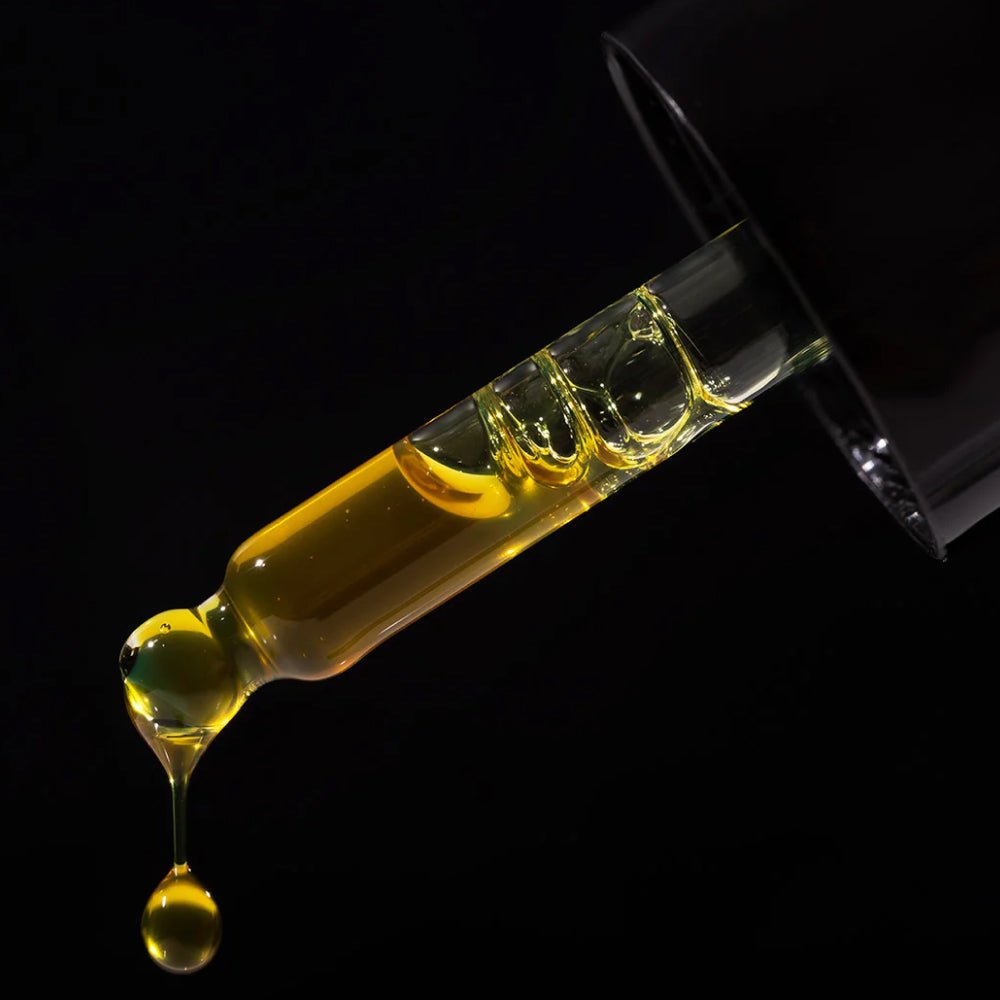Psoriasis is a chronic skin condition that affects millions of people worldwide, causing red, inflamed patches and discomfort. While steroid creams are commonly used to manage symptoms, they come with potential side effects, such as skin thinning, irritation, and long-term health risks. This has led many to seek safer alternatives. Steroid free psoriasis treatments offer a promising solution, providing effective relief without the downsides of steroids. Explore the benefits of these treatments and discover top tips to manage psoriasis for a healthier, more comfortable life.
Types of Psoriasis
Psoriasis comes in a few types, each affecting the skin in different ways.
- Plaque Psoriasis: The most common type, showing up as raised, red patches with silvery scales. They can itch, burn, and appear anywhere on the body, particularly favoring areas like the elbows and knees. On darker complexions, these patches may adopt a purplish hue cloaked in gray scales, and they can be accompanied by sensations of itching or burning.
- Guttate Psoriasis: Usually starts in kids or young adults, causing small, pink, or purplish spots on the trunk, arms, thighs, and scalp.
- Inverse Psoriasis: Found in skin folds like the armpits, groin, or under the breasts. Smooth red patches that get worse with rubbing or sweating.
- Pustular Psoriasis: Common in adults, causing pus-filled bumps on red or purplish skin, often on the hands and feet.
- Erythrodermic Psoriasis: A severe form that affects most of the body, resulting in red, scaly skin, acute burning and itching, and changes in body temperature.
Causes and Triggers
Psoriasis is a bit of a puzzle—genes, immune system quirks, and your environment all play a part, but we still don’t know exactly why it happens. Even without a family history, it can strike, though having a relative with it ups the chances.
Everyday things like stress, cuts, sunburns, strep throat, and some meds can set it off. And watch out—smoking, binge drinking, and cold weather can make it flare up even more. You may control flare-ups and maintain the health of your skin by being aware of these triggers.
Why Choose Steroid Free Psoriasis Treatments Options?
Topical steroids are a common go-to for treating psoriasis, but they can come with a downside. Misuse might lead to bruising, stretch marks, and thinning skin. Be careful when applying near the face—it can trigger red, acne-like rashes, and near the eyes, it may even increase the risk of glaucoma or cataracts. High blood sugar and osteoporosis are two health issues that could result from extended use of stronger steroids. Because of this, steroid free psoriasis treatment is a more dependable and safe long-term care solution. Here are the key benefits:
- Reduced Side Effects: Lower risk of skin thinning and other complications associated with steroids such as Topical Steroid Withdrawl (TSW)
- Long-Term Safety: Safe for extended use without long-term health risks.
- Alternative Mechanisms: Effectively targets inflammation without harsh steroids.
- Versatility: This can be combined with other treatments for better results.
- Avoiding Steroid Resistance: Helps prevent resistance that can make treatments less effective.
- Suitability for All Skin Types: Gentle and safe, even for sensitive skin.
Choosing steroid free psoriasis creams offers effective symptom relief while protecting your overall skin health.
Tips for Managing Psoriasis
The proper medications with lifestyle modifications are needed to manage psoriasis. Here is some useful advice to improve your ability to manage your symptoms and maintain the health of your skin.
1. Support Skin Health with Botanical Products
Incorporating botanical products can be an effective way to manage psoriasis. Phoilex offers steroid-free options designed to soothe and nourish your skin.
- Active ReLeaf Spot Gel: This steroid-free alternative is formulated to soothe itchy, flaky skin with powerful anti-inflammatory, calming, and hydrating properties. Dermatologist-tested, it’s ideal for sensitive skin, offering effective relief from conditions like psoriasis, eczema, and other rash-prone concerns.
- Liverty Dynamic Drops: This daily tincture targets internal inflammation, specifically in the gut and liver, which are major contributors to psoriasis. Recognizing the mind-body connection calms the nervous system, supporting healthy skin regeneration and offering a holistic approach to skincare.
Additionally, you can maximize the benefits with Dynamic ReLeaf Duo. This combines the Active ReLeaf Spot Gel and Liverty Dynamic Drops, which provides a comprehensive steroid free psoriasis treatment. Together, they help soothe external symptoms like itching and redness while addressing internal inflammation, promoting healthier and more resilient skin.
2. Avoid Triggers
The secret to controlling psoriasis is recognizing your triggers. Common triggers include stress, certain fabric washes, food sensitivities, diseases, extreme weather, cuts on the skin, smoking, binge drinking, and certain substances. Knowing what sets off your symptoms can help you take proactive steps to prevent flare-ups.
3. Improve Your Skincare Habits
Moisturizing is necessary to manage psoriasis, but moderation is also important. Use the oils, lotions, or creams recommended for your skin type once or twice a day to keep your skin hydrated without making it worse. To find the best solutions, speak with your doctor.
4. Keep Your Stress Levels in Check
Is stress making your psoriasis worse? You might be surprised at how common it is! Relaxation methods such as yoga, meditation, deep breathing, or a fast stroll can help reduce tension and calm your skin. Mastering relaxation techniques might help you stay healthier overall and prevent flare-ups.
5. Pay Attention to Your Diet
For some, certain foods can really stir up psoriasis symptoms. Steer clear of typical foods like dairy, red meat, and veggies that are considered nightshades, including tomatoes and peppers, as they might aggravate inflammation.
Instead, consume a lot of colorful fruits, leafy greens, and foods strong in omega-3 fatty acids, such as olive oil and walnuts. These delectable options reduce inflammation and enhance your mealtime experience, giving your skin the attention it deserves!
6. Get Some Sunlight (Safely)
Simple sun exposure can aid in the management of psoriasis. Try to get ten to fifteen minutes a day in the sun, but ask your doctor about safe alternatives. Avoiding tanning beds is advised since they increase the risk of skin cancer. Vitamin D3 has been studied to help reduce itching in eczema and psoriasis as well as decrease other symptoms such as inflammation and dry skin.
7. Maintain a Healthy Lifestyle
Regular exercise not only eases psoriatic arthritis symptoms but also helps keep it at bay. Stay active, and don’t forget mental health—support groups or a bit of counseling can work wonders for your well-being!
8. Steer Clear of Smoking and Alcohol
Psoriasis can get worse if you smoke and drink too much. See your doctor for advice on managing these habits if you're having trouble quitting.
9. Opt for Comfortable Clothing
Put on breathable, soft materials like bamboo or cotton to prevent skin irritation. Choose loose-fitting clothing to keep comfortable instead of scratchy, tight clothing, which can exacerbate flare-ups.
Choose the Best Steroid Free Psoriasis Treatment at Phoilex
Without the unpleasant side effects of steroids, steroid free psoriasis treatments provide a mild, efficient method of controlling flare-ups. These treatments enhance general skin health and offer long-lasting relief by addressing both external and internal irritation. Are you prepared to change? Discover the selection of steroid-free psoriasis creams from Phoilex that are intended to nourish, calm, and treat your skin from the inside out.
FAQs:
Q: What are the main benefits of using steroid-free psoriasis treatments instead of traditional steroid creams?
A: Steroid-free psoriasis treatments eliminate the risk of common side effects associated with long-term steroid use, such as skin thinning, irritation, and potential systemic health risks. These alternative treatments provide effective symptom relief while being gentler on your skin and safer for extended use. They're particularly beneficial for sensitive areas like skin folds and for people who need ongoing treatment without the concerns of steroid dependency.
Q: Which type of psoriasis is most common and how does it appear on different skin tones?
A: Plaque psoriasis is the most common type, typically appearing as raised, red patches covered with silvery scales on lighter skin tones. On darker complexions, these patches may appear purplish with gray scales instead of the typical red and silver presentation. These patches commonly appear on elbows, knees, and other areas of the body, often accompanied by itching or burning sensations.
Q: What everyday factors can trigger a psoriasis flare-up?
A: Common psoriasis triggers include physical stress to the skin like cuts and sunburns, emotional stress, strep throat infections, and certain medications. Lifestyle factors such as smoking, excessive alcohol consumption, and exposure to cold weather can also worsen symptoms and cause flare-ups. Understanding and avoiding your personal triggers is key to managing psoriasis effectively and reducing the frequency of flare-ups.
Q: Can I develop psoriasis even if no one in my family has it?
A: Yes, you can develop psoriasis without any family history of the condition, though having a relative with psoriasis does increase your risk. Psoriasis is caused by a combination of genetic factors, immune system dysfunction, and environmental triggers, so it's not solely hereditary. The condition can appear at any age, even in people with no known family connection to the disease.
Q: What is inverse psoriasis and why is it different from other types?
A: Inverse psoriasis appears in skin folds such as the armpits, groin, and under the breasts, presenting as smooth red patches rather than the scaly plaques seen in other types. This type is unique because it worsens with friction from rubbing and moisture from sweating, making these areas particularly challenging to treat. The smooth appearance without scales distinguishes it from plaque psoriasis and requires special attention to keep affected areas dry and irritation-free.
Q: What is erythrodermic psoriasis and why is it considered severe?
A: Erythrodermic psoriasis is the most severe form of psoriasis, affecting most of the body with widespread red, scaly skin accompanied by intense burning and itching. This type is particularly dangerous because it can cause changes in body temperature regulation and requires immediate medical attention. Due to its extensive coverage and systemic effects, erythrodermic psoriasis is considered a medical emergency that needs professional treatment.
Q: At what age does guttate psoriasis typically appear and what does it look like?
A: Guttate psoriasis usually begins in children or young adults, making it distinct from other types that can appear at any age. It presents as small, pink or purplish spots scattered across the trunk, arms, thighs, and scalp rather than the larger patches seen in plaque psoriasis. This type often appears suddenly and may be triggered by bacterial infections like strep throat.
References:
- National Psoriasis Foundation. (n.d.). Causes of psoriasis. Retrieved from https://www.psoriasis.org/causes/
- NHS. (n.d.). Psoriasis: Causes. Retrieved from https://www.nhs.uk/conditions/psoriasis/causes/
- American Academy of Dermatology Association. (n.d.). What causes psoriasis? Retrieved from https://www.aad.org/public/diseases/psoriasis/what/causes
- National Psoriasis Foundation. (n.d.). About psoriasis. Retrieved from https://www.psoriasis.org/about-psoriasis/
- National Institute of Arthritis and Musculoskeletal and Skin Diseases. (n.d.). Psoriasis. Retrieved from https://www.niams.nih.gov/health-topics/psoriasis
- Wikipedia contributors. (n.d.). Psoriasis. In Wikipedia, The Free Encyclopedia. Retrieved from https://en.wikipedia.org/wiki/Psoriasis
Read more

Skin conditions like eczema and psoriasis are chronic, which means they require ongoing management to maintain the skin’s balance and integrity. The goal of any type of therapy for eczema or psoria...

Currently, many are turning to herbal supplements for healthy skin. It is because these supplements are natural and provide more gentle support than conventional drugs. You can easily find various ...
